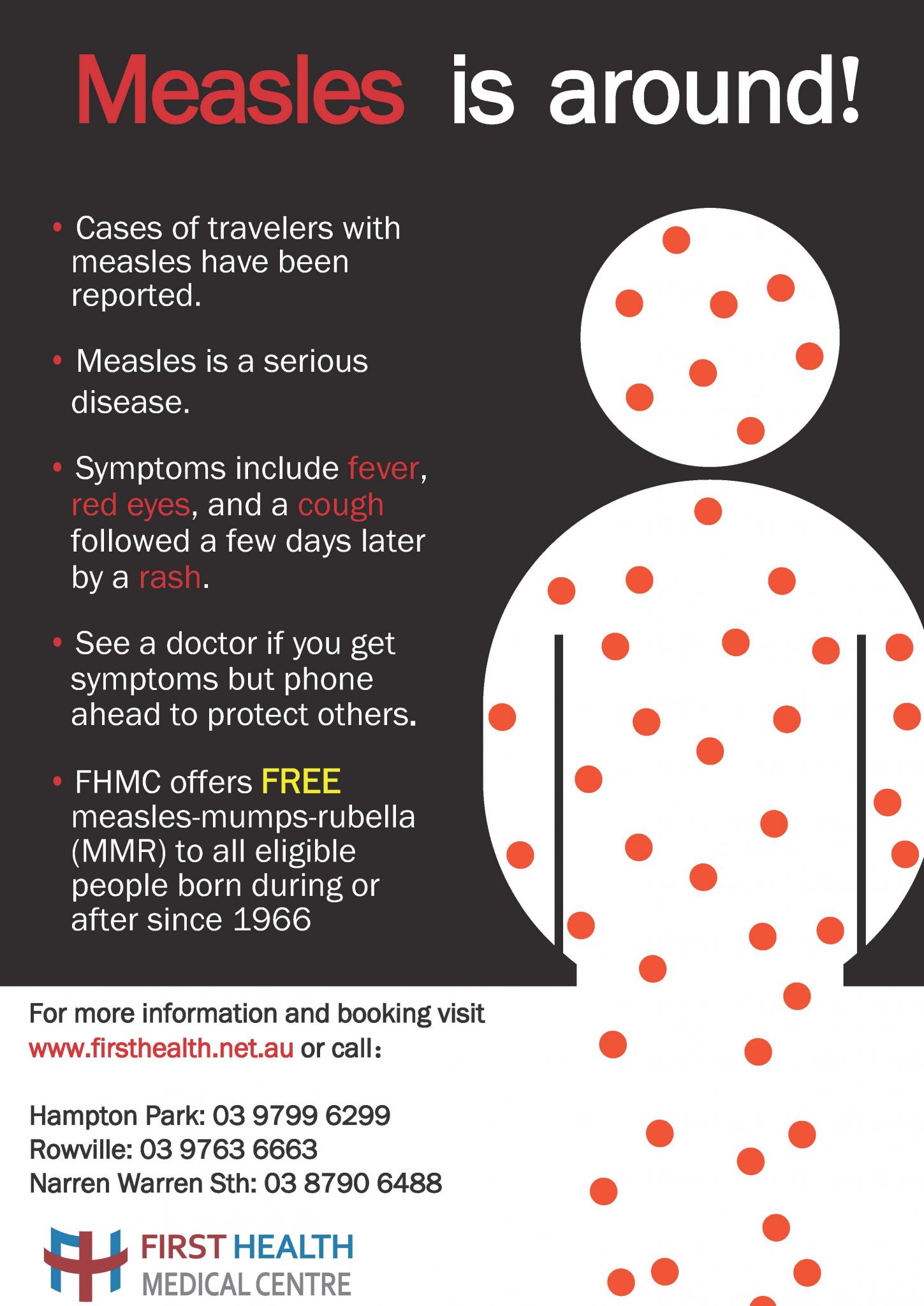What is measles?
Measles is caused by the measles virus, spread by contact with infected people’s body fluids. It is a serious disease because it can lead to:
- pneumonia and other infections of the airways
- swelling of the brain (encephalitis), which can cause a brain injury
- infection of the middle ear
- adverse effects on pregnant women and their babies
- death.
About 1 in 15 infected people get pneumonia, and 1 in 1,000 develops brain swelling. For every 10 people who develop brain swelling, between 2 and 4 people will develop a brain injury and 1 will die.
Symptoms
Measles symptoms include:
- fever
- generally feeling unwell
- tiredness
- runny nose
- dry cough
- sore, red eyes (conjunctivitis)
- red rash.
Symptoms usually start about 10 to 12 days after catching the virus and last for about 14 days. The rash often starts on the face or hairline and spreads to the rest of the body quickly. The rash is not itchy and disappears after about 1 week.
If measles leads to a more serious disease, other symptoms will develop, depending on which part of the body is affected.
Who is at risk
Measles can affect people at any age. People with a weakened immune system due to illness or injury have a higher risk of infection.
How it spreads
Measles spreads:
- when an infected person coughs or sneezes, and you breathe it in
- by direct contact with fluid from a person’s coughs or sneezes
- when you touch something that has the measles virus on it, then touch your own nose or mouth.
Measles is so contagious that around 9 out of 10 people who come in contact with the virus and are not immunised will get measles. Measles spreads easily through families, workplaces, childcare centres and schools.
If you have measles, you can help stop the disease spreading by:
- staying away from childcare, school, work or other places where you could spread the infection — your doctor will tell you when you are no longer infectious.
Prevention
First Health Medical Centre offers free measles-mumps-rubella (MMR) to all eligible people born during or after since 1966.

